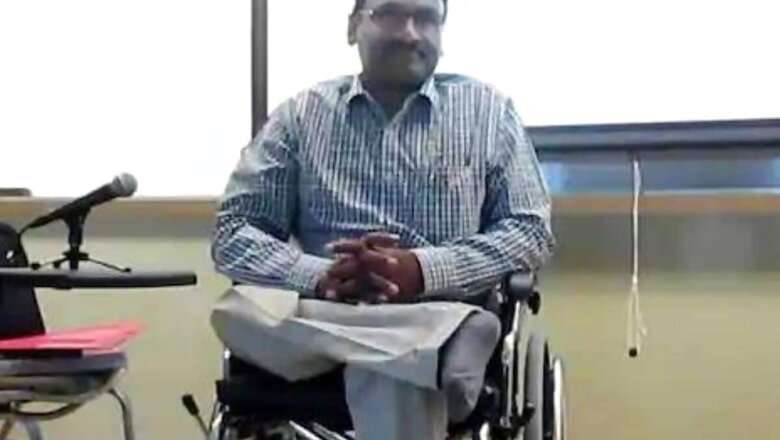
views
The Maharashtra government on Friday opposed the bail plea of former Delhi University professor G N Saibaba in the Bombay High Court bench here, saying he is being given proper medical care and kept in a separate cell where there is no fear of contracting COVID-19.
Saibaba, who is wheelchair-bound with over 90 per cent physical disability, is serving a life sentence for links with Maoists and lodged in the Nagpur Central Jail since May 2014.
Last week, he filed a bail application before the Nagpur bench of the Bombay High Court. Saibaba, in his plea filed through advocate Nihalsingh Rathod, sought bail on medial grounds so that he can get treatment outside.
The former university professor had submitted that he has been suffering from various ailments and was prone to contracting COVID-19 after outbreak of coronavirus in the jail.
The court had issued a notice to the state government on his bail plea which was heard on Friday by the division bench of Justices ZA Haq and SM Modak. The state, through Special Public Prosecutor P K Sathianathan, in a reply submitted to the HC said it is disputing Saibaba's right to claim bail again.
His earlier bail application had been rejected on March 25, 2019, Sathianathan said. Secondly, he is being given proper medical care in the jail's hospital, the state told the court. "He is in a separate cell, where there are no
coronavirus cases. Hence, there is no need to release him on bail," the prosecution said.
The bench posted the matter for further hearing on July 28. Over 150 prisoners and 40 staffers of the Nagpur Central Prison have so far tested positive for coronavirus. The jail houses nearly 1,800 inmates while 265 police personnel are attached to it.
In March 2017, a sessions court in Maharashtra's Gadchiroli district convicted Saibaba and four others, including a journalist and a Jawaharlal Nehru University (JNU) student, for Maoist links and engaging in activities amounting
to "waging war against the country". The court held Saibaba and others guilty under the stringent Unlawful Activities Prevention Act (UAPA).




















Comments
0 comment